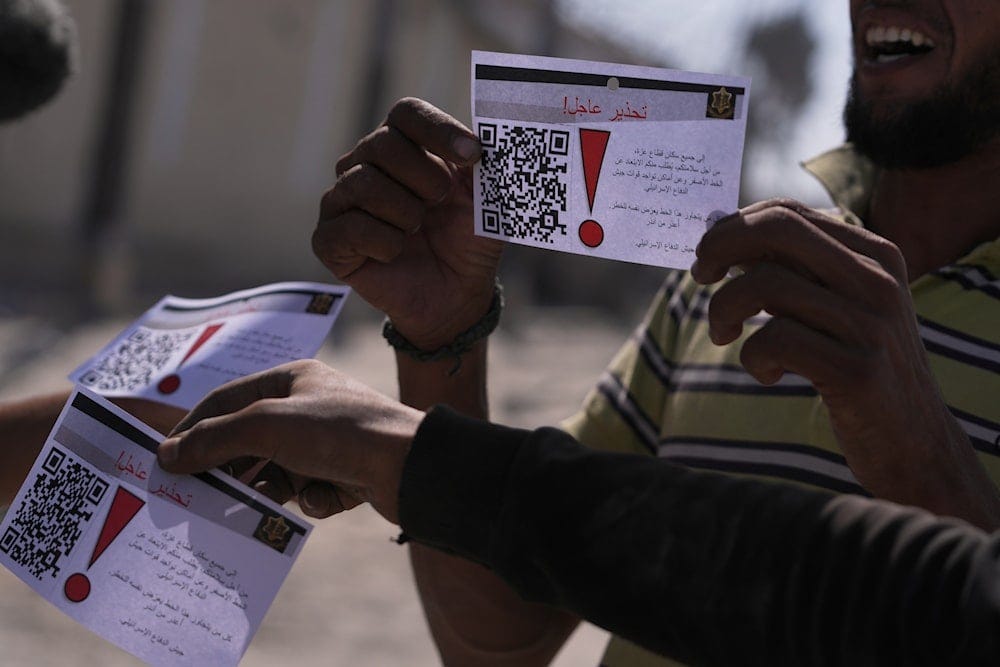US ‘New Gaza’ Plan Faces Backlash, Deemed Legitimizing Israeli Occupation
Arab and European officials warn Washington’s proposal could entrench Israeli occupation and permanently divide Gaza under the guise of reconstruction
Palestine, PUREWILAYAH.COM — A U.S.–supported proposal to rebuild a so-called “New Gaza” inside Israeli-occupied areas of the enclave has drawn strong objections from Arab nations, which warn the plan could entrench partition and marginalize Palestinian sovereignty, the Financial Times reported.
The initiative follows a U.S.-brokered ceasefire last month that left Gaza split along the “Yellow Line”: Israeli invading units on one side, while Palestinians effectively govern the other.
Washington Seeks UN Endorsement of Trump’s “Gaza Peace Plan”
In parallel, the New York Times reported that the United States is pressuring the UN Security Council to adopt a resolution formalizing President Donald Trump’s Gaza peace plan under international law.
The move, citing U.S. and diplomatic sources, has heightened fears among Arab and European states that Palestinian sovereignty may be marginalized as Washington and Tel Aviv move to entrench Israeli control through an international mandate.
“There is a clash coming on this between Palestinians, Egyptians, Qataris, Turks, and the U.S.–Israel alliance if Washington continues supporting the Israeli position,” one Arab diplomat told the Financial Times.
Reconstruction Under Occupation
The U.S. proposal reportedly aims to direct reconstruction funding exclusively to Israeli-occupied areas, excluding territories under Palestinian resistance governance.
Former U.S. presidential adviser Jared Kushner, a key architect of Trump’s 20-point ceasefire plan, promoted the initiative as a way to create a “demilitarized New Gaza” that would be “safe for Israel.” He suggested construction projects in these areas could provide Palestinians “a place to go, a place to get jobs, a place to live.”
Arab and Muslim nations have rejected this approach, warning it could legitimize Israeli control and fragment Gaza into zones of dependency.
Another Arab diplomat told FT:
“The optics would be disastrous. It would look like we are building for Israel, not the Palestinians. We don’t want Gaza to become a limbo between war and peace where occupation becomes the status quo.”
No Arab state, the diplomat added, would fund reconstruction under such conditions.
Concerns Over Permanent Division and Israeli Expansion
Jordan’s Foreign Minister Ayman Safadi stressed that Gaza is “one and part of the Palestinian Territories,” calling for a clear timeline for Israeli withdrawal.
Egypt, meanwhile, expressed deep concern over the proposal to rebuild in Rafah, near the Egyptian border. Cairo warned that concentrating displaced Palestinians there could facilitate their expulsion into Egypt, echoing past suggestions from Israeli hardliners and Trump administration figures of a so-called “Gaza Riviera” or resettlement plan.
Even within Israeli intelligence circles, skepticism remains. Former intelligence officer Michael Milshtein warned that dividing Gaza, one of the world’s most densely populated regions, would inevitably split families and deepen instability.
He said the plan mirrors earlier concepts like “Hamas-free bubbles” and “humanitarian cities” designed to contain Palestinian resistance through limited economic incentives.
Palestinian and Arab Skepticism Toward U.S. Motives
Observers cited by the Financial Times and New York Times noted that Palestinians, already displaced multiple times, are unlikely to cooperate with reconstruction projects under Israeli occupation.
Former U.S. Ambassador to Israel Dan Shapiro said it was “hard to imagine either the investment or the movement of population into that area in the near term.”
A Gulf Arab source emphasized that humanitarian relief remains the priority, while funding projects that entrench Israeli occupation is off the table. Gulf states might only consider temporary relief in Israeli-controlled zones, not long-term development under foreign authority.
Reconstruction as Political Control
The Financial Times reported that Washington’s “New Gaza” vision aligns with a broader U.S.–Israeli strategy to consolidate occupation under the cover of reconstruction.
The plan involves establishing a transitional authority under Israeli oversight, alongside an “international stabilization force,” though its mandate and composition remain unclear.
Trump’s 20-point plan outlines a phased Israeli withdrawal but ties it to the deployment of this international force, effectively giving Israel continued control over large parts of Gaza.
Arab and European nations have warned against turning Gaza’s devastation into a platform for permanent partition, arguing that reconstruction should be contingent on a complete Israeli withdrawal and respect for Palestinian sovereignty.
Regional and International Pushback
Countries including Egypt, Jordan, Qatar, and Turkey are coordinating with international partners to oppose the formal adoption of the U.S.-backed measures at the United Nations.
Diplomats caution that the “New Gaza” plan risks violating international law, facilitating demographic displacement, and marginalizing legitimate Palestinian institutions.
The plan, they warn, could transform Gaza into a demilitarized enclave under Israeli control, undermining regional stability and perpetuating occupation under a humanitarian pretext.
Ongoing Resistance and Legal Challenges
Palestinian factions are expected to resist any attempt to impose governance under occupation, while Arab states prepare legal and diplomatic challenges to block international recognition of the plan.
Humanitarian organizations are also expected to pressure donor states to condition aid and reconstruction funding on respect for Palestinian sovereignty and international law.
As Arab officials told FT, the reconstruction of Gaza must not serve as a tool for partition or political domination, but as a path toward liberation and justice for the Palestinian people. (PW)


